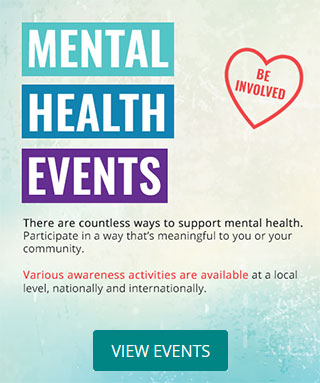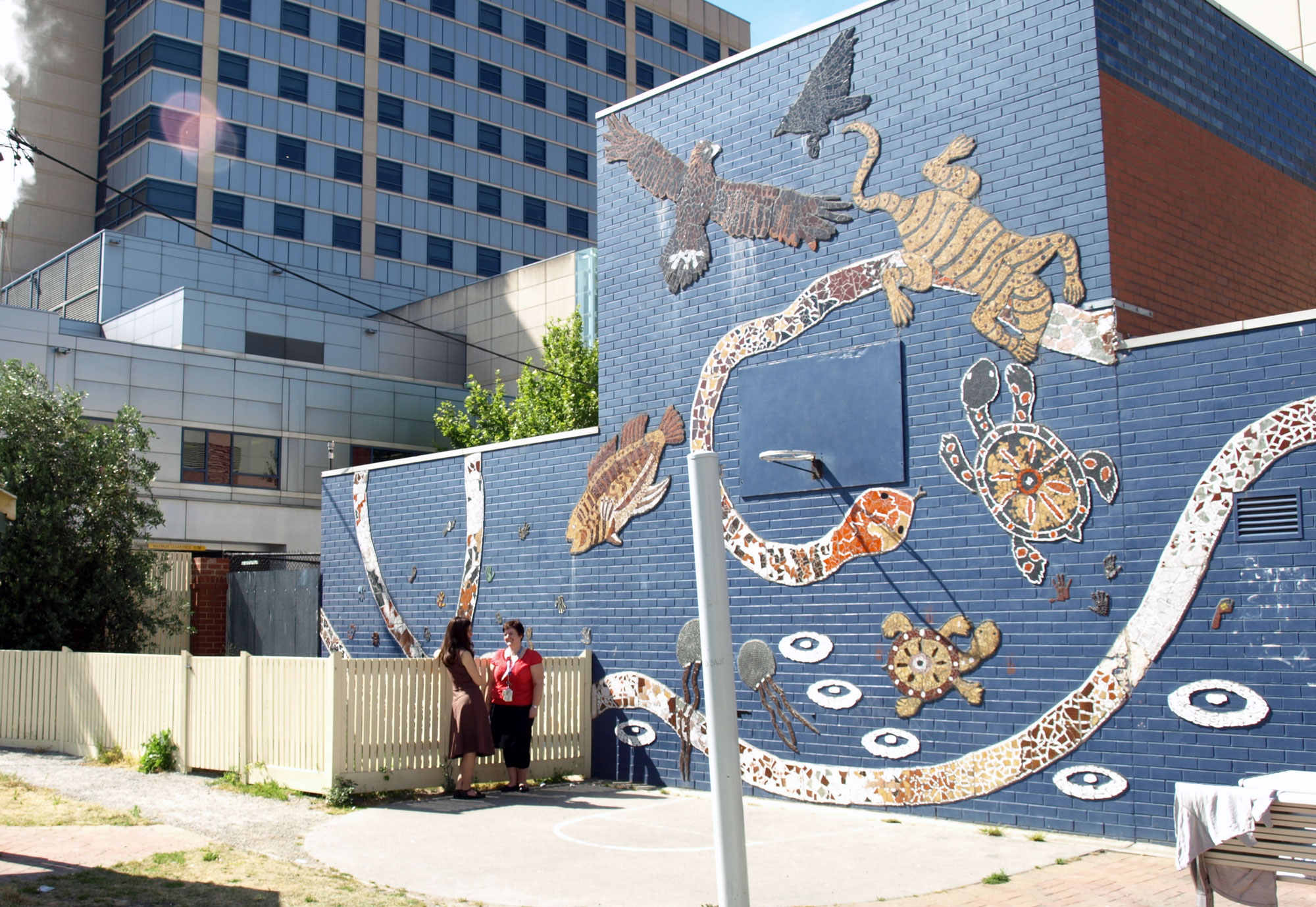Conditions & Treatment Options
What happens when you are feeling unwell?

In this section we look ed at the assessment process, diagnosis and treatment plans. We also discuss what happens if you are in hospital under the Mental Health Act (2014).
Popular
01. Victorian government PARC services framework and operational guidelines 2010
02. Independent Mental Health Advocacy (IMHA): You can contact IMHA at any time for information about your rights
03. View aSmile’s comprehensive guidelines to managing medications
Feeling unwell?
If you or someone you know is feeling unwell, there are a number of things you can do. You can contact your local area psychiatric triage line or a crisis line and discuss your concerns with a qualified mental health clinician, you can present to your GP and request a mental health plan, or in an emergency you can present to any emergency department for assessment.
When you feel unwell
Frequently asked questions (FAQs)
What is the assessment process?
If the CAT team visit you at home, they will conduct a mental state examination and carry out a risk assessment to enable them to assess your situation quickly and efficiently. They may offer to visit you at home over a period of time to ensure that you are receiving the best possible treatment for the best possible outcome. You may also request phone support if you do not feel it is necessary for them to visit you at home. In an emergency, The CAT team may be required to utilise the Mental Health Act (MHA) to bring you into hospital. This would only happen in a scenario where they feel that you are at risk of harm to yourself or others, or if you are not able to care for yourself and they deem that leaving you at home could lead to further deterioration in your mental health. This would only happen if you were unwilling or unable to make the decision to go to hospital yourself.
If you attend the Emergency Department (ED), you will be seen by triage and they will liaise with the mental health clinicians in ED. You will then be seen by a mental health clinician who will carry out a mental state examination and a risk assessment. They will work with you to try and find the most appropriate solution for your situation. This may involve referral to the CAT team, an admission to the mental health inpatient service or linking in with the ALERT team to support you in finding safe accommodation. If you are not presenting at your local ED, staff may liaise with the closest hospital to where you live with a view to transferring you there. The idea of this is for continuity of care and to allow friends and family to easily visit should you wish them to.
If you are admitted to the mental health inpatient service from ED, you will usually be escorted to the ward with a nurse and sometimes security staff to ensure your safety. On the inpatient unit, you will be welcomed by a mental health nurse who will usually take down some details, check your vital signs and orientate you to the ward. You will usually be asked to show all of your belongings when you first arrive. This is to ensure the safety of everyone in the ward including you. You will usually be asked to provide a urine sample and to consent to your bloods being taken as standard procedure. This allows your doctors to ensure you are physically well and look for any underlying indicators which may explain why you are unwell. You will usually meet your Treating Consultant Psychiatrist and/or treating registrar (a qualified doctor training to be a psychiatrist) the day following your admission, they will discuss lots of things with you including treatment options such as medications. Most mental health wards run group programs on a daily basis where you can keep yourself busy during your stay. It is normal practice to remain on the ward for at least 24 hours before you may be allowed to leave. This is so that staff can ensure you are physically and mentally well enough to leave the ward and return safely. Your doctors may also ask you to invite your family to the ward for a meeting to ensure they are able to support and understand what you are going through and to ensure they receive the support they need.
What is it like being in hospital?
What if you are in hospital under the Mental Health Act 2014?
What if you disagree with your status, diagnosis or treatment plan?
Independent Mental Health Advocacy (IMHA): You can contact IMHA at any time for information about your rights. If you are placed under the mental health act, you can contact them for support, advice or assistance and they will come and visit you on the ward. They are an independent body who can advocate for you and make sure that your treating team are hearing what you have to say. This can be a very useful resource if you are feeling unsupported, even if it is to clear up a misunderstanding and get you and your team on the same page.
If you have any concerns during your stay on the ward, you can escalate them to your contact nurse, treating team or even to the Nurse Unit Manager (NUM). They will be happy to discuss any compliments or complaints you may have around your treatment or your stay in general and are a good source of support.
What discharge planning options are available?
On discharge you will usually be provided with a prescription or 1-2 weeks worth of medications to allow ample time for you to book in with your GP for ongoing mediation supplies. It is important that you feel ready for discharge and that the appropriate supports are put in place for you when you leave hospital. This can sometimes cause a delay when your treating team is attempting to coordinate various different services to support you at home but they will work hard to keep any complications to a minimum. Whether you are receiving follow up from the CAT team, Case Management, Peer support or your GP health professionals will continue to support you in your recovery journey.
When you have been referred for case management, whether you are doing so voluntarily or in line with the Mental Health Act, you will be supported along your recovery journey to achieve your personal goals as well as educated around any changes in lifestyle, diet, medications etc. that may help you to reach the best possible outcome. You can do all of this with the support of your case manager – a mental health professional and a community consultant psychiatrist. Sometimes the community team will have a shared care arrangement with your GP as it is likely that you already have a strong relationship with them.
If you have ever experienced or are experiencing thoughts of harming yourself or ending your life you may be referred to the Hospital Outreach Post suicide Engagement (HOPE) team for more intensive, focussed case management. This team also work with family and carers to help them understand what you are going through and provide better support at a difficult time.
When you already have a case manager, you will have regular appointments with them to make sure that you are happy with your treatment and that it is adequate. If you are receiving your medication in the form of an injection you can request to have this at home or attend your local community mental health clinic, this will usually be given by your case manager or an available nurse. You will also have appointments with the community psychiatrist to review your medications, treatment and mental state to ensure you are staying well. If you or the staff have concerns that you are feeling unwell, your case manager may recommend you have an admission to hospital. They may escort you to ED or in some cases directly to the Mental Health ward for admission. This depends whether you have any physical health concerns that need to be investigated in the general ward before you are admitted to Mental Health.
If you have private health insurance, you may wish to utilise a private mental health clinic for your treatment. You may already have a private psychiatrist and want to go to the same clinic they work in for consistency of care. However, you can also ask your doctor or nurse to contact Bed brokers – a service that will find you a bed quickly and efficiently but still take your preferences into consideration. You can also seek a private bed if you have been admitted to a public hospital in emergency circumstances; once a private bed is available you will be transferred.
PARC Prevention and Recovery Care can be used for step down (from hospital) or a step up (from home) care. When you ‘step down’ from hospital, you can stay at PARC for 2-4 weeks as a transition back home. You can learn new skills, work on your recovery goals and attend group sessions with people in similar situations to you. To access PARC you will need to have a case manager who will continue to engage in your recovery whilst you are there.
You may also be able to utilise PARC as a ‘step up’ from your home environment in order to receive a little extra support than you otherwise would at home, or to give your loved ones an opportunity for respite. You can be referred to PARC by your case manager or from the mental health ward.
Community Care Units (CCU) CCU’s are recovery focussed rehabilitation units within a community setting for people with complex needs. Here you will be helped to learn/develop daily living skills and work on your recovery goals with the support of a multidisciplinary clinical team. You will be supported to re-integrate into the broader community upon completing rehabilitation.
Secure Extended Care (SECU) SECU provides medium to long term-treatment and rehabilitation to people with severe and enduring mental illness. SECU’s are inpatient units in a hospital setting and provide rehabilitation up to and including transition and discharge to an appropriate accommodation in the community. This can sometimes be a CCU.
COPES (Carer Offering Peers Early Supports) program) COPES works with your loved ones (friends and family) to provide support and education about services available to ensure they in turn can best support you during your recovery.
Community follow up arrangement/ Continuing Care Team:
- Case manager When you are referred for case management you will be allocated a specific clinician to provide support to you and your loved ones (when required) in the community. You can have appointments to see them in your local mental health clinic and they may also visit you at home. Your case manager will work with you to coordinate your ongoing recovery efforts to ensure that you stay well at home, provide education, administer medications, support you with employment goals, finances, accommodation, assess your mental state and risks as well as things like NDIS and Centrelink. Your case manager may recognise when you need increased supports and refer you to various services to ensure you can maintain your independence and life in the community.
- Mobile Support & Treatment Services (MST) MSTs case management is similar to regular case management, but the clinicians here have fewer clients to provide care for which means they can deliver more intensive outreach. This means they are available to see you on a more regular basis to make sure that you are well supported in maintaining your recovery, particularly when your needs are complex. You may be referred back to regular case management if you no longer need intensive support.
- Homeless Mental Health Services Homeless mental health services deliver mental health assessments, treatment and support to people who are homeless or at risk of homelessness. They work closely with homeless services to link people with ongoing support around accommodation, finances and healthcare to ensure you the best opportunities for recovery.
Resources
Vital services
With special thanks to
Many people have contributed to the development of this project through research, focus groups, advice, information and ideas. We would like to acknowledge and thank all who have contributed and supported us in our endeavor. They are:
Newsletters
Stay in the loop with our monthly newsletters!
If you are having thoughts of suicide, or severe self-harm please follow your crisis plan. If you do not have a crisis plan please call your treating clinician, therapist, general practitioner, one of the numbers listed below or go to the Emergency Department of the nearest hospital. In a life-threatening emergency ring 000.
Phone numbers and other supports that can be contacted in a crisis:
Life Line: 13 11 14 | www.lifeline.org.au
Sane Helpline: 1800 187 263 | www.sane.org






 The 2014 Act came into effect in July 2014. It introduced new principles to support people experiencing mental illness to make and participate in treatment decision (shared decision making) and to have their views and preferences considered and respected.
The 2014 Act came into effect in July 2014. It introduced new principles to support people experiencing mental illness to make and participate in treatment decision (shared decision making) and to have their views and preferences considered and respected.
